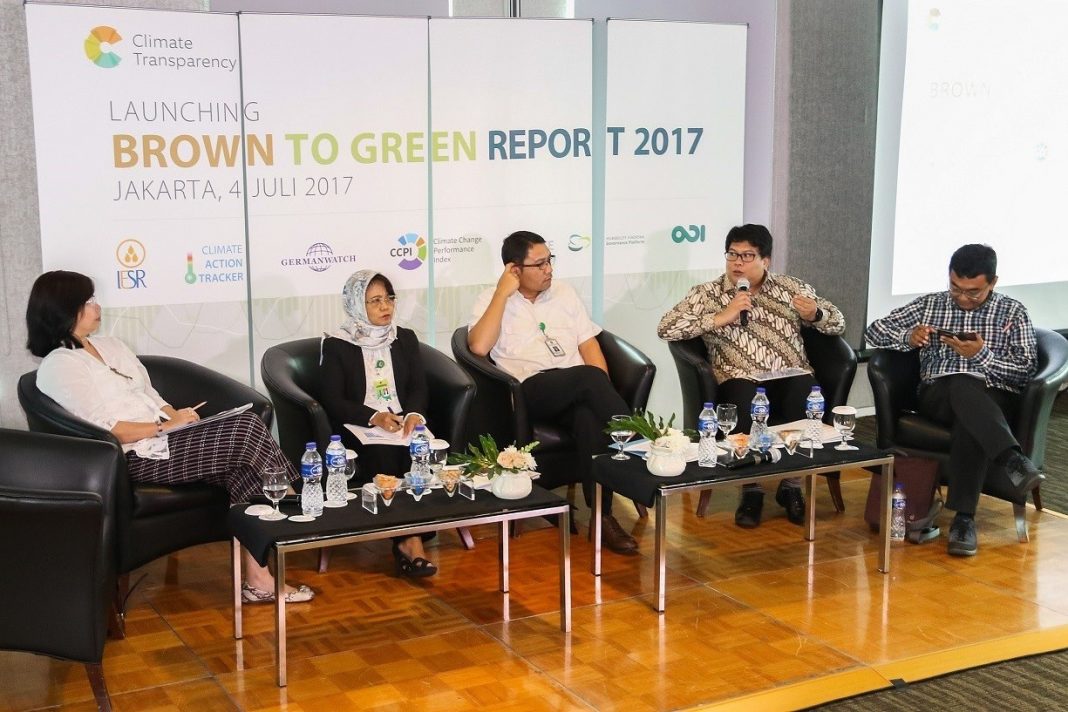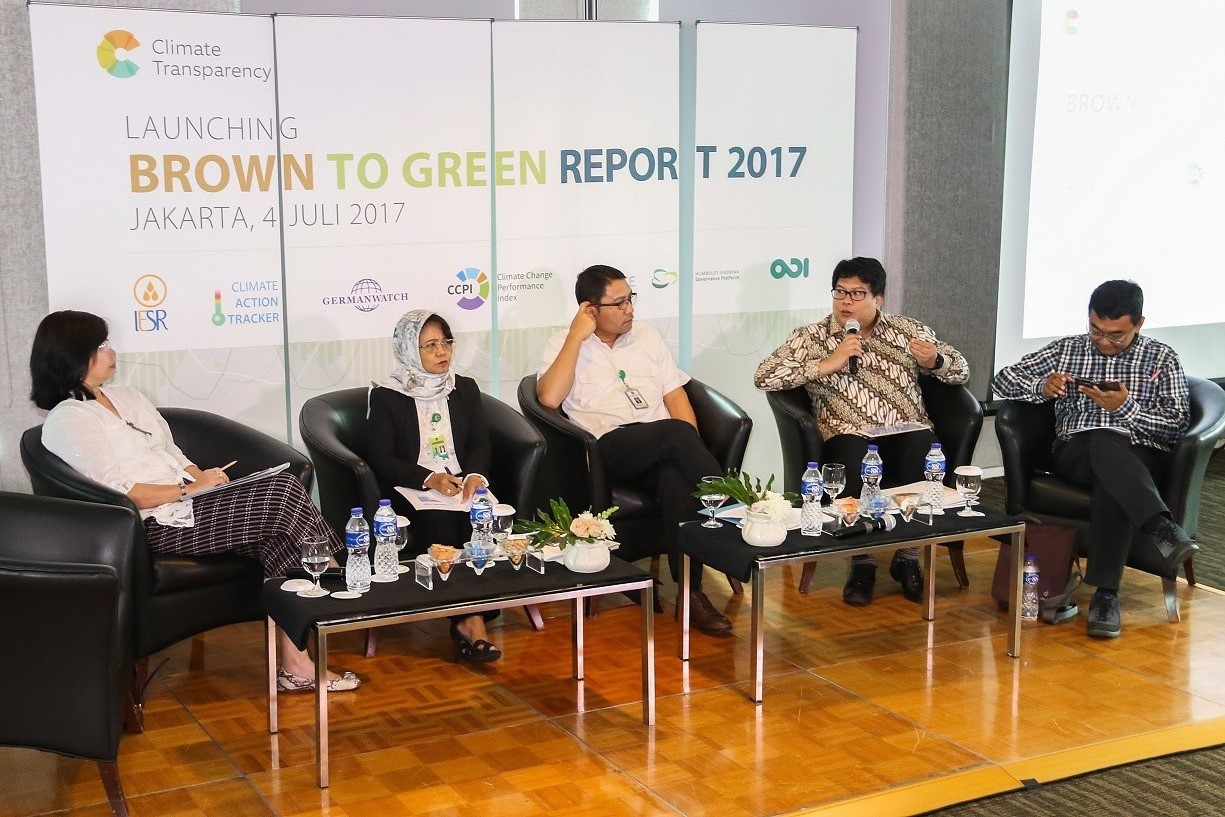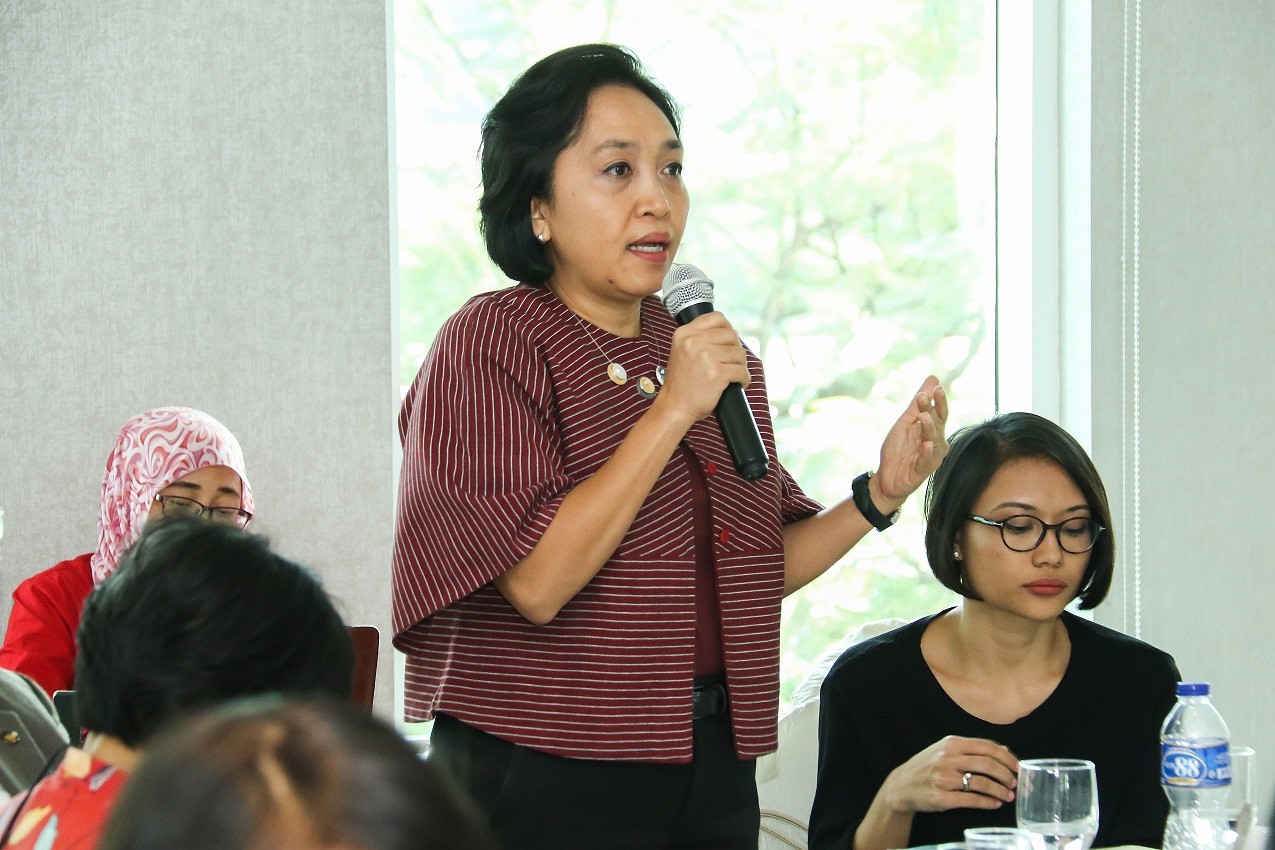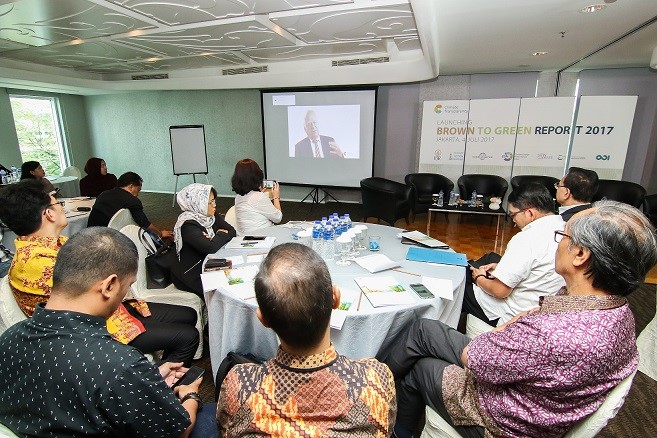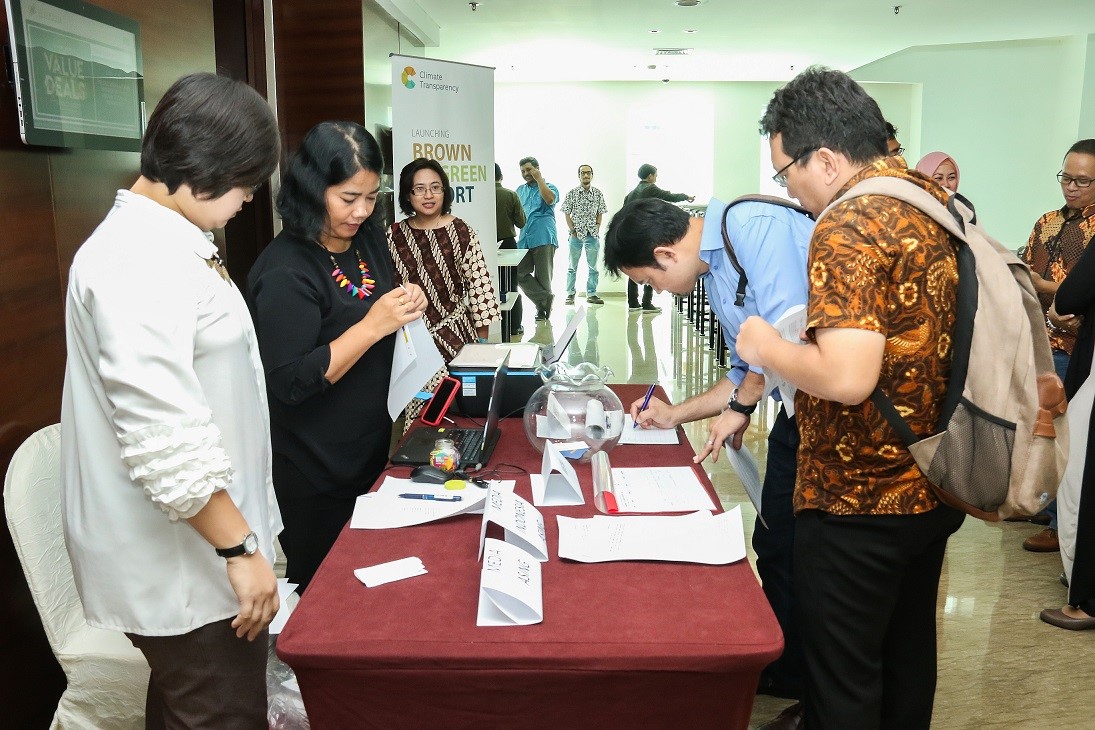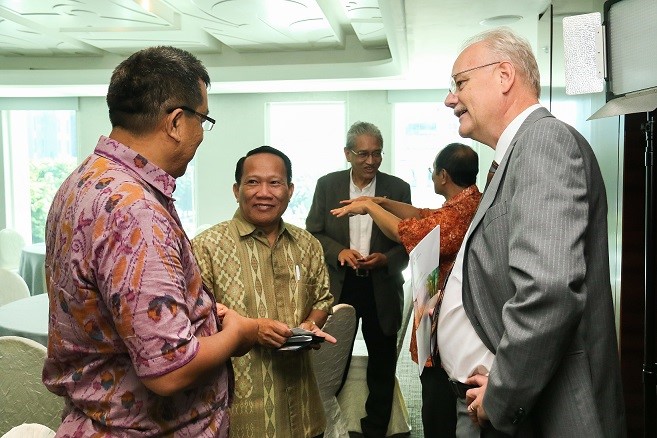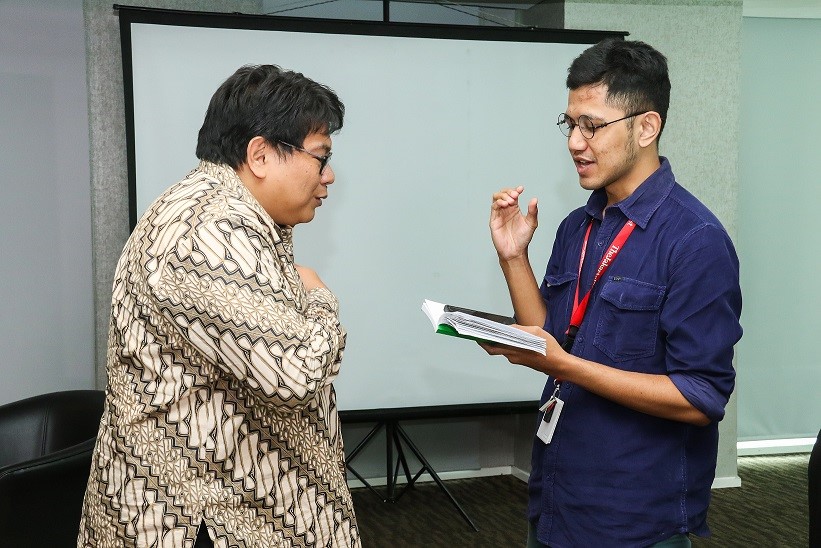Jakarta, 4 July 2017; The Institute of Essential Service Reform (IESR) organized a national launch event of the Brown to Green Report 2017. More than 50 representatives from government, civil society, think tanks and media attended the event.
After an opening of Alvaro Umaña and Peter Eigen, the Co-chairs of Climate Transparency, Fabby Tumiwa, Executive Director of IESR, gave an overview on the climate performance of G20 countries and the developments in Indonesia. The findings of the Brown to Green Report were discussed by a panel convening high-level experts: Dr. Nur Masripatin, Director General of Climate Change, Ministry of Environment and Forestry, Dr. Dadan Kusdiana, Secretary of General Director of New and Renewable Energy and Conservation Energy, Ministry of Energy and Mineral Resources, Jalal, Reader on Corporate Governance, the Thamrin School and Fabby Tumiwa, Executive Director of the Institute for Essential Services Reform. The event was followed by a press briefing.
Indonesia’s climate performance
Indonesia’s performance rates medium in the category of greenhouse gas emissions per capita, and very high in the category of energy use per capita – it has the G20’s second lowest level of energy use per capita. Its share of renewables in energy supply (8.5% in 2014) is above the G20 average. There is barely any growth in absolute renewable energy supply and absolute coal supply is increasing.
According to national experts, Indonesia has to improve its forest protection policies: it has the G20’s highest deforestation-related emissions. In addition, support schemes for renewable energy in the electricity sector and a carbon price signal have to be enhanced. In comparison to other G20 countries, Indonesia’s investment attractiveness for renewable energy is rated low: 2016 saw a small increase in installed capacity of geothermal and solar PV. Indonesia’s overall renewable energy capacity remains low. Indonesia lags behind other G20 countries in installed wind and solar PV capacities, and in attracting major global renewable energy businesses.
Indonesia’s fossil fuel subsidies are one of the G20’s highest, and represented a substantial part of the government’s budget in 2014. Since 2014, there has been progress in phasing out fossil fuel subsidies partly due to fiscal pressures. On the other hand, Indonesia has plans to expand its coal plant construction.
Transparency in climate action in Indonesia
Panelists also discussed the challenges Indonesia faces regarding transparency and reporting of data also under the UNFCCC transparency framework. Cooperation mechanisms between ministries and the national and local governments have to established.


